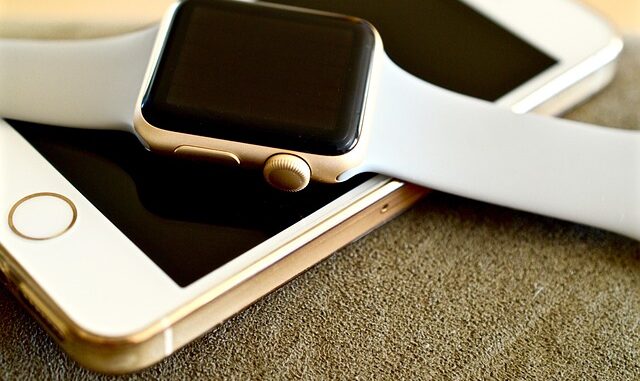
Summary
This article explores the transformative impact of medical technology on personalized healthcare. We discuss how advancements like AI, IoMT, and wearables empower patients and revolutionize treatment approaches. The future of healthcare promises increased personalization, efficiency, and accessibility.
Safeguard patient information with TrueNASs self-healing data technology.
** Main Story**
Personalized Healthcare: It’s Here, and It’s a Game Changer
The world of healthcare is changing fast, really fast. Medical technology is leading the charge, and what we’re seeing is a move towards treatment that’s tailored to you. Think AI, the Internet of Medical Things (IoMT), and those wearable health devices we’re all starting to sport. These aren’t just fancy gadgets; they’re changing the game. I mean, who would have thought a smartwatch could do so much?
Ultimately, we are looking at a future where healthcare is more personalized, more efficient, and, crucially, more accessible. And that’s something worth getting excited about.
AI: Your Personal Healthcare Assistant?
AI is the big one, really driving this whole personalization thing. It can sift through mountains of patient data – medical records, genetic blueprints, lifestyle choices – to spot patterns that a human doctor might miss. It helps doctors build treatment plans that are truly unique to each of us. It is, in effect, a personalized treatment plan.
I remember a presentation I saw last year where an AI algorithm predicted a patient’s risk of developing diabetes years in advance! Amazing stuff, right? This kind of predictive power could allow for preventative measures, maybe helping people avoid serious illness altogether.
IoMT: Constant Connection, Constant Care
Ever heard of the IoMT? Think of it as a network of smart medical devices, all talking to each other. Your smartwatch, your fitness tracker, even implantable devices like cardiac monitors—they’re all part of this network. All constantly collecting data and sending it to your doctor. And, sometimes, it is nice to know that someone is watching out for you.
Because of this, doctors can keep a closer eye on your health, and make adjustments to your treatment plan if needed. It’s like having a healthcare team constantly monitoring your health from afar.
Wearables: Putting You in Control
Remember when wearables were just glorified pedometers? Not anymore. Nowadays, these little gadgets can track everything from your heart rate and ECG to your blood oxygen levels and even blood pressure. It’s incredible. Giving you real-time feedback, empowering you to take charge of your health. It’s like having a mini health dashboard right on your wrist. I will be honest I find it hard to keep up with the latest models, it’s a new release every week it seems!
And because they can monitor your health remotely, your doctor can keep tabs on you even when you’re not in the clinic. It’s a real step forward for proactive healthcare.
Revolutionizing Treatment
Medical technology is shaking up treatment methods across the board. Take surgery, for example. AI-powered robots are helping surgeons perform complex procedures with incredible precision, minimizing the invasiveness of operations. Similarly, 3D printing is allowing doctors to create customized medical implants, prosthetics, and even tissues and organs. How cool is that? A perfect fit, every time.
Then you’ve got virtual reality (VR) and augmented reality (AR), which are being used for surgical training, pain management, and even patient education. The possibilities are endless.
Turning Your Home Into a Healthcare Hub
With the rise of remote patient monitoring and telehealth, our homes are becoming healthcare hubs. Video calls with your doctor, remote diagnostics, and at-home health monitoring are all becoming commonplace. It’s about convenience, but it is also about giving people control over their own healthcare. Less time in waiting rooms, more time living your life.
Challenges on the Horizon
However, it’s not all sunshine and roses. There are challenges we need to address. Data security and privacy are huge. It is essential to protect all this personal health information from falling into the wrong hands. And while the technology is advancing, it needs to be accessible to everyone. There also the fact of intergrating all these new innovations into healthcare, it takes planning and collaboration.
But despite these challenges, I am optimistic about the future of healthcare. The move toward personalized, proactive, and patient-centered care is something we should all support and be excited about. These advances will continue to transform how we deliver and experience healthcare for years to come.


Given the increasing reliance on IoMT and wearables, how are healthcare providers addressing the potential for data overload and ensuring effective analysis to improve patient outcomes rather than create alert fatigue?
That’s a great point! Alert fatigue is a real concern. Many providers are using AI-powered systems to filter and prioritize data from IoMT devices, ensuring clinicians focus on the most critical information. This helps to improve response times and prevent burnout. What strategies have you seen or heard about?
Editor: MedTechNews.Uk
Thank you to our Sponsor Esdebe
AI spotting diabetes risk years ahead? Sounds like my AI could tell me when my pizza order will *actually* arrive. Jokes aside, if AI can predict illnesses, what’s stopping it from prescribing preventative *Netflix* binges based on stress levels? Asking for a friend, of course.
Haha, I love the pizza analogy! And you’re right, preventative Netflix binges should definitely be on the table. It’s interesting to think about AI tailoring lifestyle suggestions based on individual needs and preferences. Maybe AI-powered personalized recommendations are the future of well-being!
Editor: MedTechNews.Uk
Thank you to our Sponsor Esdebe